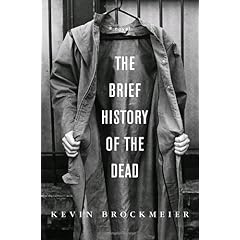
I think what I enjoyed most about this book is the level of detail and research that went into it. While being a good story, it also provides (what I hope is) a fairly accurate picture of Chinese women's lives at that point in time. The author includes poems and songs and things that reflect how the women talked to each other. Part of the story's focus is nu shu or "women's secret writing," and entirely seperate written language that developed in a particular region of China. Family and friends used it to write letters when they were seperated, as most women, it would seem, were always "married out" to a different town than the one she grew up in.
I think I was surprised that the women had such complex social structures, given how "worthless" they were considered to be...the point of a woman was to have a son. But they did have very complex rituals and social groups and traditions that almost amounted to things like bridesmaids and such. It's also interesting just how ingrained the culture was into these women. It makes me wonder a bit about cultures where roles and traditions are so well defined that you don't have to think about much of anything. You just know what you're place is and how you should related to other people. Does that make it easier for everyone to get along, or harder for people to be happy?
One that seemed odd about the language of the book was that even though the main characters are followed from about age 6 until their 40's and beyond, the style of their speak doesn't seem to change much. Granted, the narrator is about 80, but it's hard to understand just how young the girls are at the beginning because of the way they talk.
The passages about foot binding where just plain disturbing. Not disturbing bad, I guess, but just unimaginable. I couldn't help googling it after I read that part.
In the end, it's another story-of-women's-relationships-hardships-etc. It'll will be a big book club book. But it's done pretty well with lots of back-up for what goes on (the research, etc). Since I'm a total history dork, I like the fact that I can feel like I'm getting an accurate glimpse of what the life was like. The paperback versiion also includes a narrative about the author's time in China doing research for the book, which was pretty interesting.
